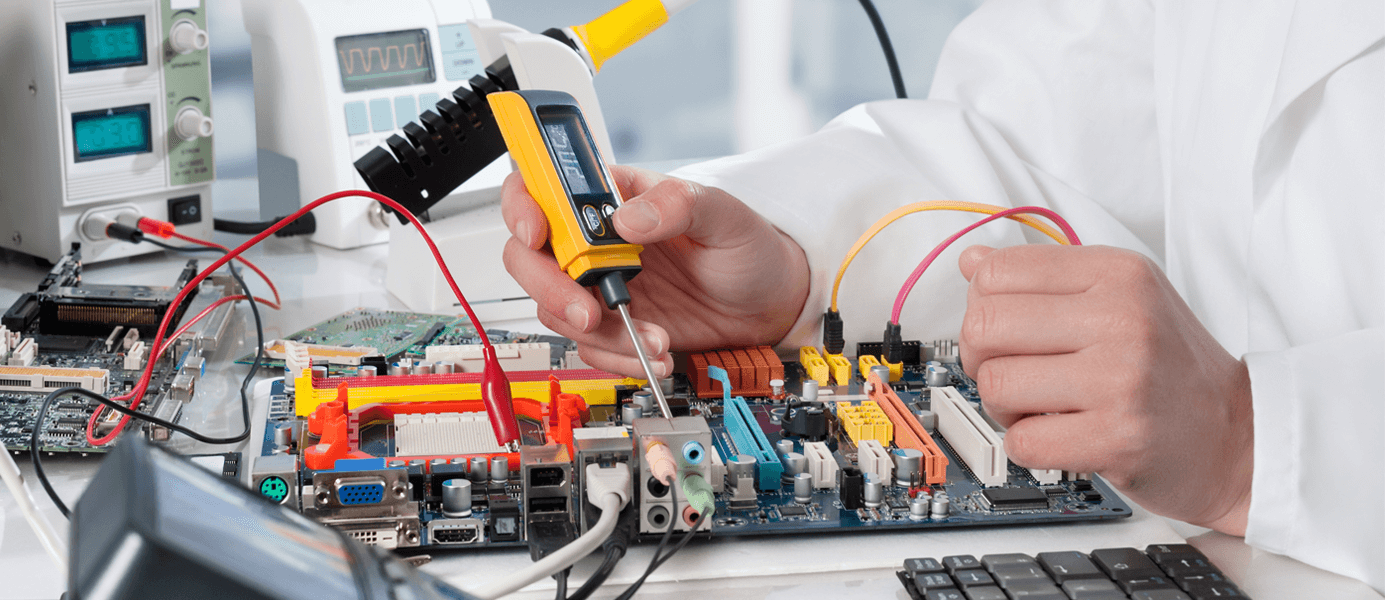Ph.D. ELECTRONICS AND COMMUNICATION ENGINEERING

Electronics brings together academic and industrial expertise across a wide spectrum of advanced technologies. Our culture of innovation, strong industry partnerships, and international collaborations with reputed universities provide an ideal environment to achieve your research goals. The PhD program emphasizes application-oriented research addressing challenges of local, national, and global significance. Research is conducted through specialized canters equipped with state-of-the-art laboratories, industrial-grade computing facilities, and the latest simulation and design software, under the defining the research problem or hypothesis and planning studies with strict timelines. Data collection, analysis, drawing conclusions, and publishing preliminary technical papers. Weekly mentor-candidate meetings, quick feedback, high mentor-to-student ratio, peer-to-peer learning, and collaborative partnerships to accelerate progress. Excellent guidance of highly qualified and experienced faculty from top national and international institutions.
3 Years (Fulltime)
5 Years (Part-Time)
Introduction to research methodology and technical communication skills essential for thesis completion and publication.
Formation of a faculty committee aligned with your research interests.
Conducting literature review, defining a research topic, and completing coursework.
Defining the research problem or hypothesis and planning studies with strict timelines.
Data collection, analysis, drawing conclusions, and publishing preliminary technical papers.
Weekly mentor-candidate meetings, quick feedback, high mentor-to-student ratio, peer-to-peer learning, and collaborative partnerships to accelerate progress.
Guidance for publishing peer-reviewed papers and competing in the academic research landscape.
Opportunities for teaching experience and grant writing based on candidate interest.
Support for successful thesis completion, defense, and career placement.
A well-balanced Ph.D. degree is a pathway to a great future in academics as faculty, scientists at research centers, and divisional leaders in industry.
PEO 1: Design and develop innovative products in the field of Electronics and Communication Engineering.
PEO 2: Pursue higher education or professional development for life-long learning.
PEO 3: Demonstrate entrepreneurial capabilities and contribute to community development through innovative and ethical practices.
PO1: Engineering knowledge: Apply the knowledge of mathematics, science, engineering fundamentals, and an engineering specialization to the solution of complex engineering problems.
PO2: Problem analysis: Identify, formulate, review research literature, and analyze complex engineering problems reaching substantiated conclusions using first principles of mathematics, natural sciences, and engineering sciences.
PO3: Design/development of solutions: Design solutions for complex engineering problems and design system components or processes that meet the specified needs with appropriate consideration for the public health and safety, and the cultural, societal, and environmental considerations.
PO4: Conduct investigations of complex problems: Use research-based knowledge and research methods including design of experiments, analysis and interpretation of data, and synthesis of the information to provide valid conclusions.
PO5: Modern tool usage: Create, select, and apply appropriate techniques, resources, and modern engineering and IT tools including prediction and modeling to complex engineering activities with an understanding of the limitations.
PO6: The engineer and society: Apply reasoning informed by the contextual knowledge to assess societal, health, safety, legal and cultural issues and the consequent responsibilities relevant to the professional engineering practice.
PO7: Environment and sustainability: Understand the impact of the professional engineering solutions in societal and environmental contexts, and demonstrate the knowledge of, and need for sustainable development.
PO8: Ethics: Apply ethical principles and commit to professional ethics and responsibilities and norms of the engineering practice.
PO9: Individual and team work: Function effectively as an individual, and as a member or leader in diverse teams, and in multidisciplinary settings.
PO10: Communication: Communicate effectively on complex engineering activities with the engineering community and with society at large, such as, being able to comprehend and write effective reports and design documentation, make effective presentations, and give and receive clear instructions.
PO11: Project management and finance: Demonstrate knowledge and understanding of the engineering and management principles and apply these to one’s own work, as a member and leader in a team, to manage projects and in multidisciplinary environments.
PO12: Life-long learning: Recognize the need for, and have the preparation and ability to engage in independent and life-long learning in the broadest context of technological change.
PSO1: Apply mathematics, electronics, and computing fundamentals to design electronic systems, considering trade-offs in design choices.
PSO2: Utilize modern technologies and system software to develop products from physical devices to application-level solutions.
Qualified and experienced academia from top national and international institutes having strong research acumen
Research staff with experience in real time industrial applications
State-of-the-art and fully equipped laboratories
Highly advanced industrial graded computing facilities with latest simulation softwares
National and International research collaborations with reputed Universities
Mentoring from reputed industry researchers